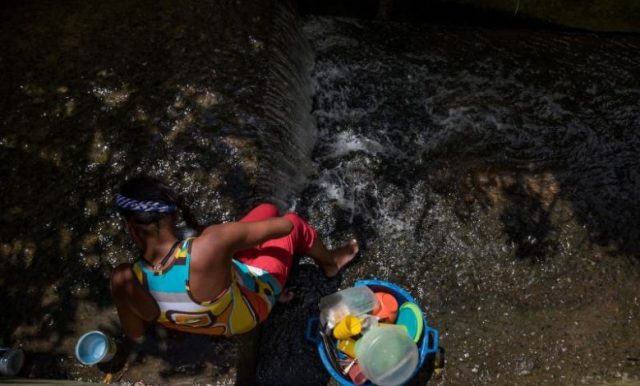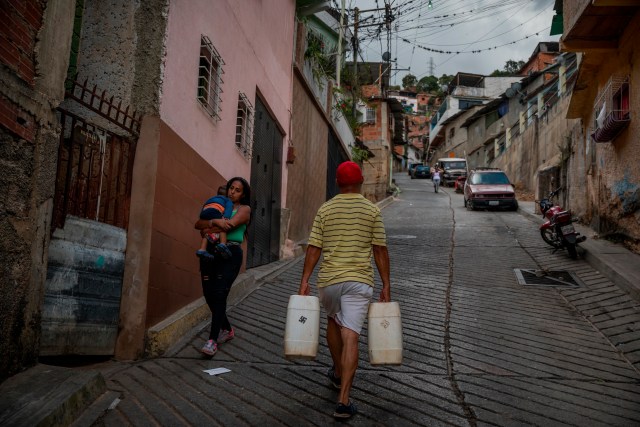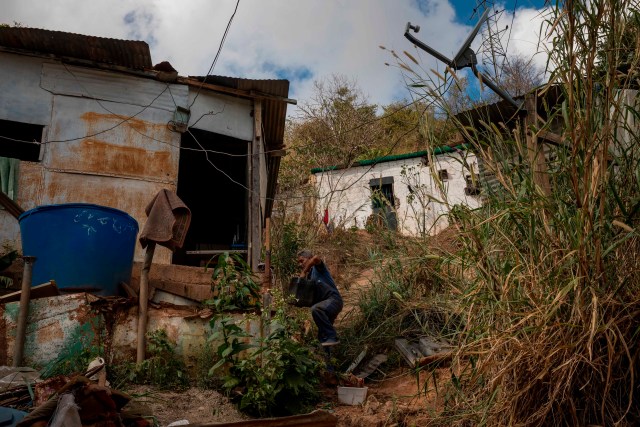
Jeanette Celis yearns for the rain to fall on the impoverished Caracas neighborhood of La Vega by the end of February in the hope that it could fill half a dozen containers she has around her house.
By EFE / Free translation from Spanish by La Prensa Latina
Like many in Venezuela, she has been without running water for months.
A sheet of zinc crafted into a makeshift canal transports the rainfall from her roof to an enormous tank outside her house.

“My husband is very clever at doing these things,” Celis tells Efe as she explains how the rudimentary gutter works. There are similar contraptions on all of the roofs in La Vega.

Just a few meters away, Kimberly Bruzual tells Efe she does not remember the last time she had running water at home. She has also run out of reserves of rainwater.
To mitigate the shortage, the 19-year-old has to head down to the bottom of the hillside neighborhood to collect water that is occasionally provided by a truck.
The water has to be “reused,” the young mother tells Efe. “I wash the baby with clean water, then I use it to wash diapers, then I chuck it in the toilet.”
Norberto Baussón, director of the local NGO Ojo Avizor, tells Efe that a lack of running water affects nine in 10 families in Venezuela, something he attributes to mismanagement of the country’s aqueducts and a shortage of skilled workers as a result of mass emigration.

